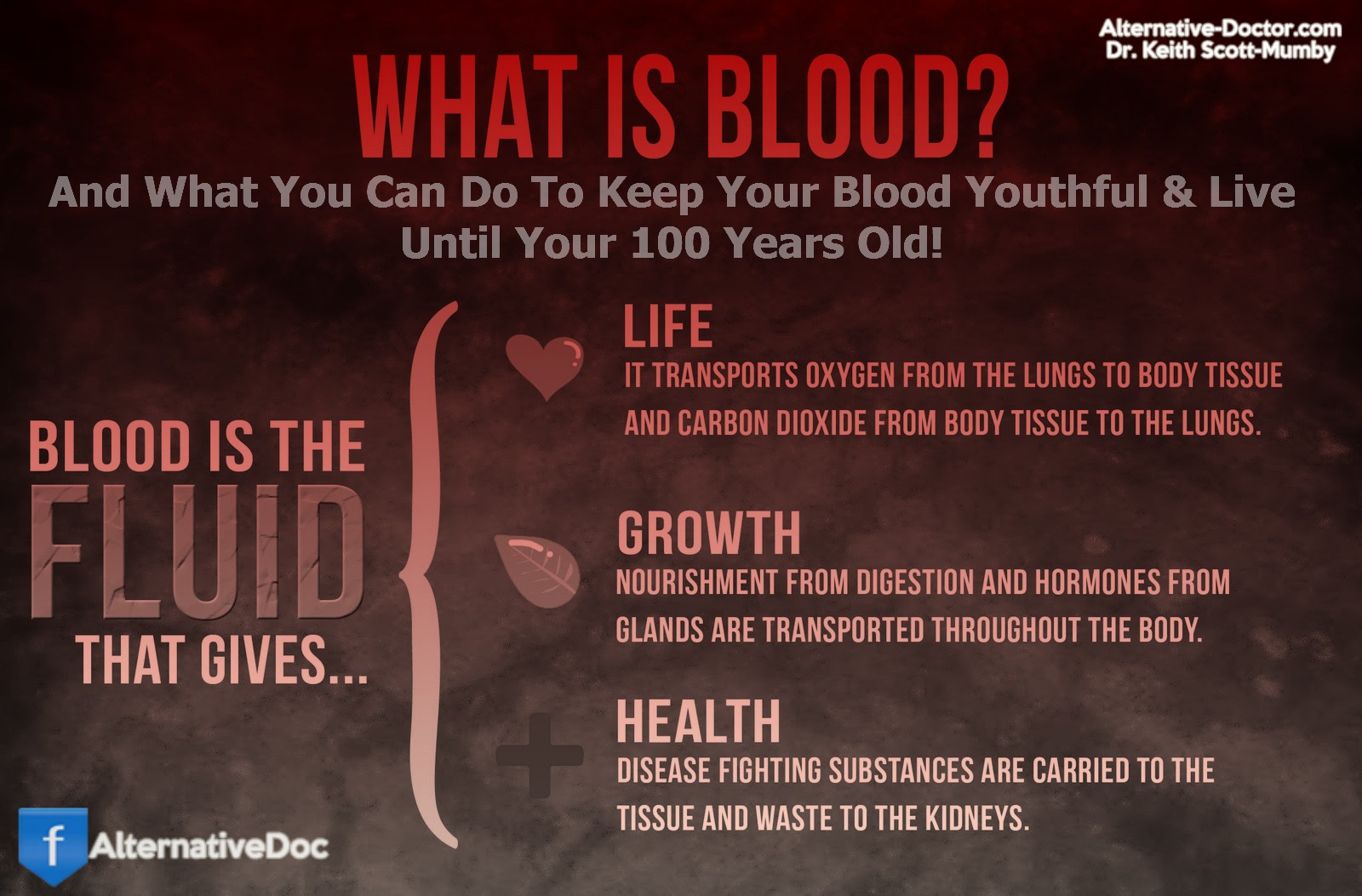…And What You Can Do To Keep Your Blood Youthful & Live Until Your 100 Years Old!
When will the pendulum swing away from the nonsensical obsessive focus on lipid metabolism and move to viscosity and clotting? Most fatal cardiovascular events are blood clots, not fat sludge!
Now a new study from Edinburgh University in the UK has shown conclusively that blood viscosity (its free flowing liquid vs. sludging characteristic) is crucial. It is NOT the quality of artery walls that matters; it’s the quality of the blood itself.
Raised blood viscosity is at least as important as two old favorites: blood pressure and “bad” cholesterol (LDL) in predicting death by heart attack.
PLUS: THEY SHOWED IT’S MORE IMPORTANT THAN SMOKING AS A RISK FACTOR.
This is so obviously important that only doctors making money off the outdated nonsense of chasing cholesterol levels for a living will fail to act on this research and incorporate it in patient care.
Big Pharma will try to smother the research, because cholesterol-controlling statin drugs are still their number one profit earner, worldwide.
Study Details…
The Edinburgh Artery Study, as it’s called, looked at a random population of 1,592 men and women aged 55 to 74 years, who were followed over a mean period of 5 years. After adjustment for age and gender, the levels of blood viscosity and a related measurement were consistently raised in patients who had experienced a bad cardiovascular event, such as heart attacks or stroke. 1
 In a seminal report just prior to the publication of the Edinburgh Artery Study, Lousiana State University pathologist Gregory Sloop proposed that blood viscosity is the one unifying mechanism by which pulls together and makes sense out of all currently accepted cardiovascular risk factors, including LDL cholesterol, high blood pressure, diabetes, obesity and smoking.2
In a seminal report just prior to the publication of the Edinburgh Artery Study, Lousiana State University pathologist Gregory Sloop proposed that blood viscosity is the one unifying mechanism by which pulls together and makes sense out of all currently accepted cardiovascular risk factors, including LDL cholesterol, high blood pressure, diabetes, obesity and smoking.2
Moreover, numerous other published studies have confirmed the link between blood viscosity and the following cardiovascular risk factors:
- Hypertension 3-6
- Hyperlipidema: positive correlation with LDL cholesterol, total cholesterol and triglycerides; negative correlation with HDL cholesterol 7-13
- Diabetes, insulin resistance syndrome and obesity 12,14-18
- Tobacco smoking 6,19-21
- Male gender vs. pre-menopausal women 12-13,22-23
- Aging 12,21,24
In his report, which was titled A Unifying Theory of Atherogenesis, Dr. Sloop indicated that blood viscosity was uniquely suited to predict the entire course of cardiovascular disease because blood viscosity accomplishes the following:
- Accounts for the morphological similarity of atherosclerotic lesions associated with many diverse risk factors
- Explains the anatomic distribution of lesions throughout the body.
- Provides a role for platelet activation by turbulent blood flow caused by hyper-viscosity.
- Includes an explanation of the protective role of HDL “good” cholesterol (i.e., HDL has been shown experimentally to lower viscosity).2
Blood viscosity holds certain similarities with blood pressure.
Like blood pressure, the viscosity of blood changes during each cardiac cycle and is reported using two numerical quantities: systolic and diastolic viscosity.
However, while blood pressure is parameter of the circulatory system as a whole, blood viscosity is a parameter specific to the fluid flowing through the system. Therefore, viscosity can be said to precede pressure and therefore to be more fundamental than pressure.
What’s To Be Done?
You need to make sure that, if you are in medical care, your physicians are using viscosity measurements to monitor your risks.
If they are not, demand they do or change to a different physician. Otherwise you will join the army of 50% of citizens who die of cardiovascular events.
Do NOT accept Coumadin as a means of controlling clotting risk because:
- It’s dangerous in its own right (a whole other story)
- It’s solving the wrong problem (it does nothing for viscosity)
Take plenty of omega-3s, as we always tell you. It’s anti-inflammatory, slows blood clotting and, if you like, “thins the blood”.
Be sure to discontinue it before dental or surgical treatment, otherwise the dentist or surgeon will have trouble stopping the bleeding! That’s how good it is.
If you have already had an adverse event, get Dr. Garry Gordon’s “Beyond Chelation Improved” formula (BCI). Dr. Gordon boasts ten million dollars of published research behind it and that it eliminates those fatal CV events, because BCI lowers blood viscosity. 
While taking BCI, no one has suffered a fatal cardiovascular event or stroke in over a decade.
“No matter how serious the clinical picture is (i.e. High Grade LAD vascular occlusive disease, diabetes, lipid issues, high CRP) my patients are all routinely protected against MI and stroke,” Dr. Gordon says (personal communication, Sep. 27th, 2013)
 Finally, invest in a PEMF device and use it on yourself regularly. The PEMF-100 is the one I would recommend. Immediately after use, microscopic examination of the blood shows that the “sticky” parcels of red cells have broken up and the blood is much more free-flowing.
Finally, invest in a PEMF device and use it on yourself regularly. The PEMF-100 is the one I would recommend. Immediately after use, microscopic examination of the blood shows that the “sticky” parcels of red cells have broken up and the blood is much more free-flowing.
Ten to fifteen minutes a day could keep your blood youthful for many decades to come!
If you can’t afford the considerable expense of one of these devices, find a local practitioner who has got one or is willing to buy one for his or her practice. Book yourself in regularly for sessions.
PEMF devices are the future, according to doctors like Garry Gordon.
To Staying Young,
Prof. Keith Scott-Mumby
Dying too soon means misery and disease and that’s not a happy life.
Get it right and you have a whole second life to come, full of fun and vigor.
Many are still stuck in the story “It’s in your genes.”
That’s yesterday’s science and is wrong. Ready to dive in? Get your copy now.
